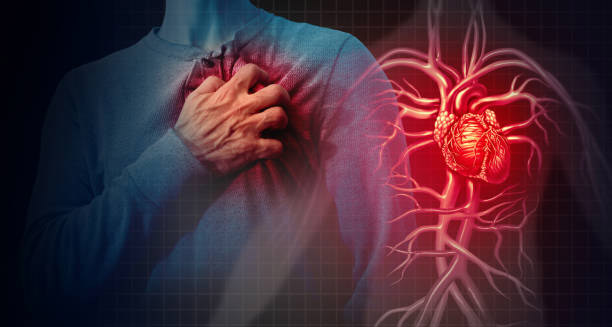Causes of Heart Attack
The causes of heart attack are predominantly related to cardiovascular disease, particularly atherosclerosis. This is a process where fatty deposits, cholesterol, and other substances accumulate in the walls of the coronary arteries. Furthermore, forming plaques that narrow and harden the arteries. Understanding the causes of heart attack helps guide prevention, early detection, and treatment strategies.
One of the primary causes is the rupture of an atherosclerotic plaque. When a plaque breaks open, it triggers the body’s clotting system to form a thrombus (blood clot) at the site of rupture. This clot can significantly reduce or completely obstruct blood flow through the coronary artery. This deprives the downstream heart muscle of oxygen and nutrients. The longer the blockage remains, the more damage is done to the heart tissue.
Causes of Heart Attack
Several risk factors contribute to the development of atherosclerosis and the likelihood of plaque rupture. These include:
High blood pressure (hypertension): Increases the strain on arterial walls, accelerating plaque formation and rupture.
High cholesterol levels: Particularly elevated LDL (“bad”) cholesterol contributes to plaque buildup, while low HDL (“good”) cholesterol reduces the body’s ability to clear fat from the blood.
Smoking: Damages the lining of the arteries, promotes clot formation, and reduces oxygen in the blood.
Diabetes: Leads to damage of the blood vessels and increases the risk of atherosclerosis.
Obesity and physical inactivity: Contribute to other risk factors like high blood pressure, high cholesterol, and insulin resistance.
Unhealthy diet: High in saturated fats, trans fats, salt, and sugar promotes plaque buildup.
Family history of heart disease: Genetic predisposition plays a significant role.
Stress and excessive alcohol use: Can negatively affect blood pressure, cholesterol levels, and overall heart health.
In addition to atherosclerosis, other less common causes of heart attack include coronary artery spasm (a sudden tightening of the muscles within the artery walls), coronary artery dissection (a tear in the artery wall), and severe physical or emotional stress that causes a surge of hormones such as adrenaline, which may reduce blood flow to the heart.
Certain infections, autoimmune diseases, and clotting disorders can also contribute to vascular inflammation or increase the risk of thrombus formation. Rarely, a heart attack may occur after drug use, particularly stimulants like cocaine, which can cause vasospasm and increase heart rate and blood pressure.
Causes of Heart Attack
In conclusion, the causes of heart attack are largely preventable with lifestyle changes, medical management of risk factors, and regular cardiovascular screening. Reducing modifiable risks and being aware of one’s health status are critical steps in preventing heart attacks and ensuring long-term heart health.


